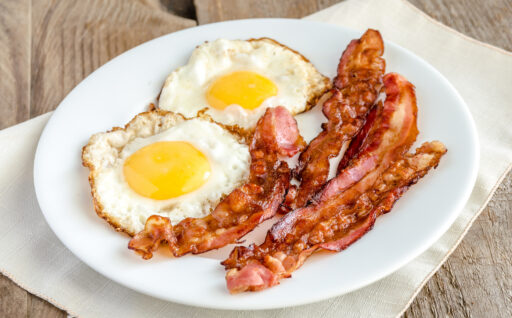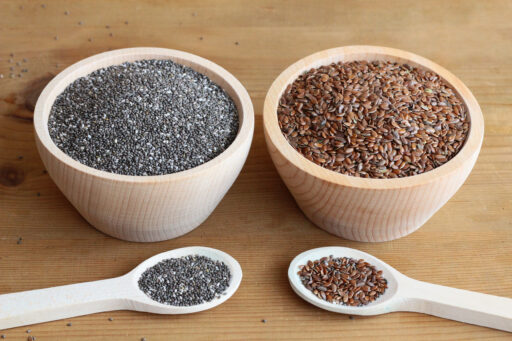Psoriasis is a skin disease that causes redness, itching, and flaking. Many factors can cause psoriasis, such as genetics, smoking, alcohol use, stress, and diet. Because diet is a contributing factor that is controllable, many patients choose to alter their diets in an effort to help relieve symptoms. So, how are a vegan diet and psoriasis improvement linked?
A 2012 study in Psoriasis: Targets and Therapy found that diets rich in fresh fruits and vegetables are associated with a lower prevalence of psoriasis, and vegetarian diets were associated with clinical improvement. According to a 2022 study published in Clinics in Dermatology, the elimination of animal products, the introduction of plant foods and vitamin B12 supplements may have a protective role in skin diseases. In particular, a nutritionally complete vegan diet may offer many benefits for patients with psoriasis.
Let’s take a closer look to find out how exactly a vegan diet can help improve psoriasis.
- 1. Limited pro-inflammatory saturated fat and eliminated leucine, IGF-1, and whey
- 2. Polyunsaturated fatty acids
- 3. Vitamin B12
- 4. More antioxidants, polyphenols, vitamins and minerals
- 5. Reduced calorie intake
- Other dietary factors likely to improve psoriasis symptoms
- How a vegan diet and psoriasis improvement may be connected
1. Limited pro-inflammatory saturated fat and eliminated leucine, IGF-1, and whey

Vegan diets limit dietary sources of pro-inflammatory saturated fat and eliminate leucine, IGF-1, and whey, which promote psoriasis. While no single diet has been shown to have a significant impact on every variation of psoriasis, eliminating pro-inflammatory foods and introducing anti-inflammatory foods is likely to help. This is because psoriasis is a chronic inflammatory disease. Lifestyle modifications such as dietary changes can reduce inflammation.
Saturated fats, found in fried foods an animal-based foods, can also increase IGF-1. Meat and dairy also promote leucine, which promotes inflammation. Eliminating animal products limits the intake of saturated and trans fatty acids, which improves the skin.
Given that the casein in dairy increases IGF-1 levels and whey proteins have insulin-like effects, both whole and skim dairy products can worsen acne. Skimmed milk products have an even higher content of hormonal compounds.
2. Polyunsaturated fatty acids

Vegan diets facilitate increased consumption of polyunsaturated fatty acids, which have an anti-inflammatory effect. Some studies have shown little to no improvement in the use of fish oil to treat psoriasis, while others have shown slight to statistically significant improvement.
Vegan sources of omega-3s include algae oil, chia seeds, flax seeds, and walnuts, without the concerns about mercury and toxins. Furthermore, it is not necessarily the fish oil itself but the polyunsaturated fatty acids found in fish oils that appear to be a treatment option for psoriasis. Consuming olive oil, a rich source of polyunsaturated fatty acids, has also been reported to positively impact psoriasis.
3. Vitamin B12

Supplementing with vitamin B12 on a well-planned vegan diet helps reduce psoriasis. Taking 1,000 mcg of B12 twice a week is recommended on a vegan diet to prevent deficiencies. Consuming very high levels of B12, however (5-10mg/week) can actually promote acne, however.
A diet rich in fat and low in fiber impacts the gut microbiome and promotes an inflammatory response. Polyunsaturated fatty acids and omega-3s have an anti-inflammatory effect. Some studies indicate that levels of these fatty acids are related to psoriasis severity. In contrast, omega-6s may have a proinflammatory role. Plant-based diets typically keep an appropriate ratio of omega-6s to omega-3s and avoids most harmful saturated fats.
4. More antioxidants, polyphenols, vitamins and minerals

Increased intake of fruits and vegetables from vegan diets means more antioxidants, polyphenols, vitamins and minerals. Several studies have shown the diets rich in antioxidants, found in leafy greens, fruits, tomatoes, carrots and many other vegetables, may help diminish skin lesions. Fruits and vegetables offer protection with their anti-inflammatory and antioxidant effects. Antioxidants also help reduce oxidative stress, which promotes psoriasis. Additionally, foods rich in polyphenols, like tea, coffee, herbs and spices may help.
Studies have found that prebiotics with polysaccharides, found in fiber-rich foods, may promote a healthy gut and in turn improve psoriasis. Plants are the only foods that contain fiber. Vegan diets also promote high intake of various antioxidants and polyunsaturated fatty acids, which are directly related to healthier skin.
Consuming large amounts of fruits, vegetables, nuts, legumes, and cereals has been reported to positively impact psoriasis. Additionally, vegan and vegetarian diets often include high amounts of potassium, which the body uses to make cortisol, a common treatment for psoriasis.
Certain foods are thought to be especially beneficial in treating psoriasis. Saffron, cranberries, soybeans, nuts, chocolate and omega-3 polyunsaturated fatty acids (given through fish oils in this study, but also found in vegan sources like flax seeds) are speculated to have favorable effects.
5. Reduced calorie intake

Vegan diets promote reduced calorie intake, indirectly fighting psoriasis. The lower calorie and fiber-rich quality of vegan diets also helps fight obesity. This is because fatty tissue produces hormones, which contributes to psoriasis by promoting a chronic inflammatory state. Plant-based diets often help patients to cut calories sustainably, as the high fiber content allows them to feel full. Vegetarian and omega-3-rich diets alternating with fasting periods have also been associated with clinical improvement.
Furthermore, a low-calorie diet supports the effectiveness of topical medications in treating psoriasis, regardless of actual weight loss. The National Psoriasis Foundation also recommends reducing excess weight and establishing healthy habits and active lifestyles to reduce psoriasis.
Other dietary factors likely to improve psoriasis symptoms
A 2019 dermatological clinical review reported that in one study, at least 50% of respondents reported that reducing intake of red meat, dairy, alcohol, gluten, nightshades and junk foods improved their skin. Vegetarian diets have been associated with increased anti-inflammatory compounds compared to omnivorous diets, as well as lower expression of proinflammatory genes in the gut microbiome.
Many patients with psoriasis have high levels of antigliadin antibodies. For these patients, a gluten-free diet may also have a positive effect on their psoriasis. Patients with insulin resistance may have higher prevalence of psoriasis, as insulin resistance provokes inflammation. As such, foods with low glycemic index may become part of the general management of psoriasis.
How a vegan diet and psoriasis improvement may be connected
While no extensive randomized studies have yet analyzed the relationship between a vegan diet and skin diseases like psoriasis, some data suggest that a plant-based diet can positively impact them. Although the relationship between a vegan diet and psoriasis is not absolute, what is well-documented is that low-calorie, varied diets rich in plants with limited alcohol are often beneficial for patients with psoriasis.
Vegan diets and psoriasis improvement appear to be connected in five ways: Vegan diets limit dietary sources of pro-inflammatory saturated fat and eliminate leucine, IGF-1, and whey, which promote psoriasis. They facilitate increased consumption of polyunsaturated fatty acids, antioxidants, polyphenols, vitamins and minerals while reducing overall calorie intake. Finally, supplementing a well-planned vegan diet with vitamin B12 on a well-planned vegan diet also helps reduce psoriasis.


